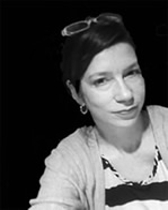Michelle Molina
Affiliated Faculty, The John and Rosemary Croghan Chair, Associate Professor in Catholic Studies

- molina@northwestern.edu
- Crowe Hall 4-142
J. Michelle Molina (PhD, University of Chicago, 2004) studies the Society of Jesus in the early modern period. She explores Jesuit spirituality in an effort to understand how individuals – both elite and commoner -- approached and experienced religious transformation. In particular, she has been interested in examining the impact of the Ignatian Spiritual Exercises – a meditative retreat geared toward self-reform – on early modern global expansion. Molina’s book, To Overcome Oneself: The Jesuit Ethic and the Spirit of Global Expansion is published with University of California Press. The book examines the impact that this Jesuit program of radical self-reflexivity had on the formation of early modern selves in Europe and New Spain. She offers a novel retelling of the emergence of the Western concept of a “modern self” by demonstrating how the struggle to forge and overcome selves was enmeshed in early modern Catholic missionary expansion.
Now, emerging from the early modern period to bear witness to events in her own era, Molina explains what it might mean that the new pope is a Jesuit. She has observed that it is best to situate this Jesuit pope in relation to the modes of self-formation found in the Ignatian Spiritual Exercises and, importantly, that this Catholic imperative to “know thyself” indicates that Pope Francis is well versed in what has been termed “philosophy as a way of life.”
Molina is developing a new research project that asks, how did it become possible to see bodies in parts? How did new ideas about human anatomy circulate, outside of philosophic treatises, even outside of the literate world? One is a question about the formation of ideas; the other about their circulation. She contend that addressing both concerns is possible through a study of early modern Catholic devotional literature and devotional practices and begins by examining eighteenth-century transformations in devotion to the Sacred Heart of Jesus to argue that the distinctive shape of the anatomically-correct heart offers a concrete sense of this historical moment when spiritual contemplation and observation of natural phenomena converged. From there, she moves to consider the shift from "heart" to "mind" as the seat of human subjectivity and the target of various programs for human transformation that included spiritual, moral and/or psychological therapeutics.
The courses she teaches are varied, ranging from graduate courses on body and embodiment, upper-division undergraduate seminars on Christianity and colonialism, and a freshman seminar on philosophy and religion in the films of Woody Allen.
Courses Taught
- “Embodiment and Materiality”
